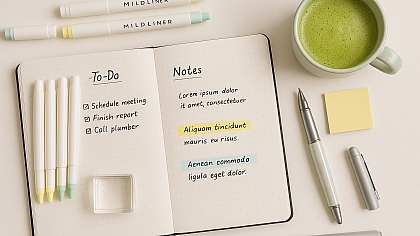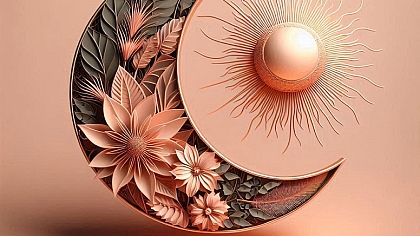
Office Chairs: Exploring Materials, Durability and Longevity
Office chairs are often unsung heroes in the modern workplace. While we sit on them day in and day out, few of us take the time to consider the intricate world of materials, durability, and longevity that these chairs are designed to withstand.
Let's peel back the layers and uncover the secrets of office chairs, exploring the materials that make them, their durability, and the keys to their long and productive lives.
Materials Matter
The first chapter in The Secret Life of Office Chairs begins with the materials used in their construction. The choice of materials can significantly influence the chair's durability, comfort, sustainability, and overall performance.
Frame Materials:
Office chairs typically have frames made of steel or aluminium. Steel is known for its strength and durability, making it a popular choice for heavy-duty chairs. Aluminium, on the other hand, is lightweight and corrosion-resistant, making it suitable for chairs that require mobility and versatility.
Seat and Back Materials:
The seat and backrest of office chairs can be constructed from various materials, including:
- Mesh: Mesh is breathable and provides excellent support while maintaining flexibility. It's commonly used in ergonomic chairs for its comfort and breathability.
- Fabric: Fabric upholstery is comfortable and comes in various colours and textures. It's a popular choice for chairs that prioritize aesthetics and comfort.
- Leather: Leather is a premium option known for its luxurious feel and durability. It's often used in executive and high-end office chairs.
- Plastic: Some chairs feature plastic seats and backrests, which are lightweight and easy to clean. They are often found in guest chairs and waiting areas.
Padding Materials:
The padding in office chairs plays a crucial role in comfort and support. Common padding materials include:
- Foam: High-density foam padding is comfortable and provides good support. Memory foam is a popular option for its ability to contour to the user's body.
- Gel-Infused Foam: Gel-infused foam offers enhanced comfort by dispersing heat and promoting better circulation.
- Air Grid: Air Grid technology combines mesh and foam to create a comfortable, breathable, supportive seat.
Durability: A Chair's Hidden Strength
Durability is a critical factor in the secret life of office chairs. A well-constructed chair can withstand years of use without showing signs of wear and tear. Here are some aspects that contribute to a chair's durability:
Frame Strength:
The frame of an office chair is its backbone. Steel and aluminium frames are known for their strength and resilience. Welded joints and reinforced components ensure that the chair can withstand the rigours of daily use.
Quality of Upholstery:
The type and quality of upholstery materials can significantly impact a chair's durability. High-quality fabrics, leather, and mesh are less prone to tearing and fading, ensuring the chair retains its appearance over time.
Seating Mechanisms:
Office chairs often have various adjustable features, such as recline mechanisms, tilt controls, and seat height adjustment. These mechanisms are designed for durability and ease of use, ensuring they can withstand repeated adjustments without breaking.
Base and Casters:
The base of an office chair is typically made of metal, such as aluminium or steel, for stability and durability. The casters (wheels) are often made of sturdy materials like nylon or polyurethane, designed to withstand the demands of rolling across different floor surfaces.
Weight Capacity:
are designed with specific weight capacities in mind. Choosing a chair that can comfortably support your weight is essential to ensure its long-term durability.
Longevity: Extending the Life of Your Chair
While office chairs are built to be durable, there are steps you can take to extend their lifespan even further:
Regular Maintenance:
Cleaning and maintaining your chair regularly can prevent dirt, dust, and stains from accumulating. Follow the manufacturer's guidelines for cleaning and care to keep your chair looking and functioning like new.
Proper Usage:
Use your chair as intended and avoid overloading it or using it in ways it wasn't designed for. For example, use something other than a guest chair as a substitute for a task chair meant for extended periods of sitting.
Adjustments and Ergonomics:
Use the chair's adjustable features to create an ergonomic and comfortable seating position. Proper ergonomics can reduce the wear and tear on your chair and prevent discomfort or damage from poor posture.
Avoiding Excessive Force:
Be gentle with the chair's adjustment controls and mechanisms. Avoid using excessive force when adjusting the chair's height, recline, or tilt functions.
Using Chair Accessories:
Use accessories like chair mats to protect your flooring and prevent premature wear on the chair's casters. Seat cushions or lumbar pillows can provide extra support and comfort.
Regular Inspections:
Periodically inspect your chair for loose screws, bolts, or any signs of damage. Address any issues promptly to prevent further damage.
In the secret life of office chairs, materials, durability, and longevity are the unsung heroes. The materials used in construction provide the foundation for comfort and support, while durability ensures that the chair can withstand the test of time.
By following proper care and maintenance practices, you can unlock the full potential of your office chair, extending its life and ensuring that it continues to be a reliable companion in your daily work and endeavours. So, next time you sit, remember that your office chair has secrets to share about comfort, durability, and the art of lasting support.









